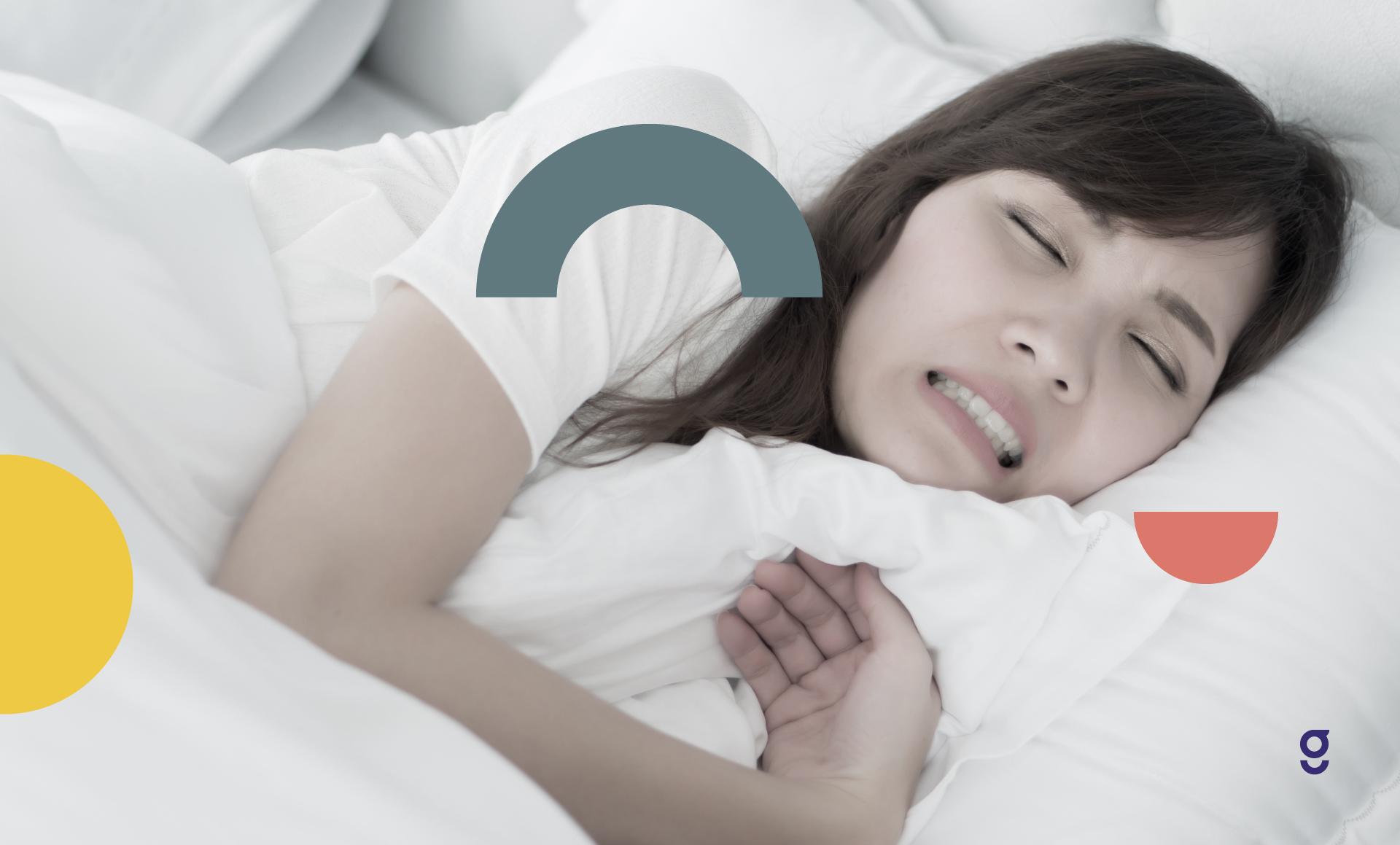What Causes Nighttime Teeth Grinding (Bruxism)?

What Is Nighttime Teeth Grinding?
The American Academy of Sleep Medicine (AASM) defines nighttime teeth grinding, also known as sleep-related bruxism, as repeated jaw movements with teeth grinding or clenching.
When teeth grinding happens occasionally, it is unlikely to be a problem. However, if it occurs often it may impact the quality of your sleep, damage your teeth and gums, and cause pain and morning headaches.
What Is The Cause Of Teeth Grinding?
Most of the time the cause is unknown. However, it may be related to the following factors:
Sleep problems, like obstructive sleep apnea or insomnia
Gastric reflux (GERD)
Mental health problems, like anxiety
Medicines, like antidepressants
Family history of teeth grinding
Smoking, alcohol use, coffee drinking (8 or more cups/day)
What Are The Symptoms?
Clenching or grinding of the teeth is the key symptom. It may be reported by your sleep partner. Other symptoms of nighttime sleep grinding include:
Pain and Injury
Morning headaches
Jaw, head, or neck pain or muscle spasms
Injuries to the tongue, lips and cheeks
Damage to Teeth
Increased sensitivity of teeth
Trouble chewing
Damaged teeth or dental work
Fractured or loose teeth
Sleep Problems
Poor sleep quality
Daytime fatigue
How Is It Diagnosed?
Your dentist will ask about risk factors, including your medical history and medicines you’re taking. They will ask about your symptoms and check your teeth and mouth for damage. A referral for a sleep study (polysomnography) to check for associated sleep problems may be recommended.
How Is Nighttime Teeth Grinding Treated?
There isn’t a cure for teeth grinding, however, there are treatments that can minimize the symptoms and complications.
Dental Care
Oral appliances or night guards; usually custom-made and fit by a dentist
Regular preventive dental appointments including checking the status of the teeth and mouth for changes related to teeth grinding
Prescription medicines may be recommended in coordination with doctors
Medical Care
Your doctor may support the treatment provided by your dentist. They may discuss your medicines, treat associated medical problems, or sleep studies. They may also recommend making lifestyle changes, altering your sleep habits, and using relaxation and meditation techniques.
Goodpath can help with your sleep problem. We offer a well-rounded, personalized program based on your responses to our sleep assessment. Once you complete our free assessment, we’ll provide a program that includes mind-body techniques, exercise and nutritional support, as well as supplements, over-the-counter medicines and devices. Get started. Take our assessment.